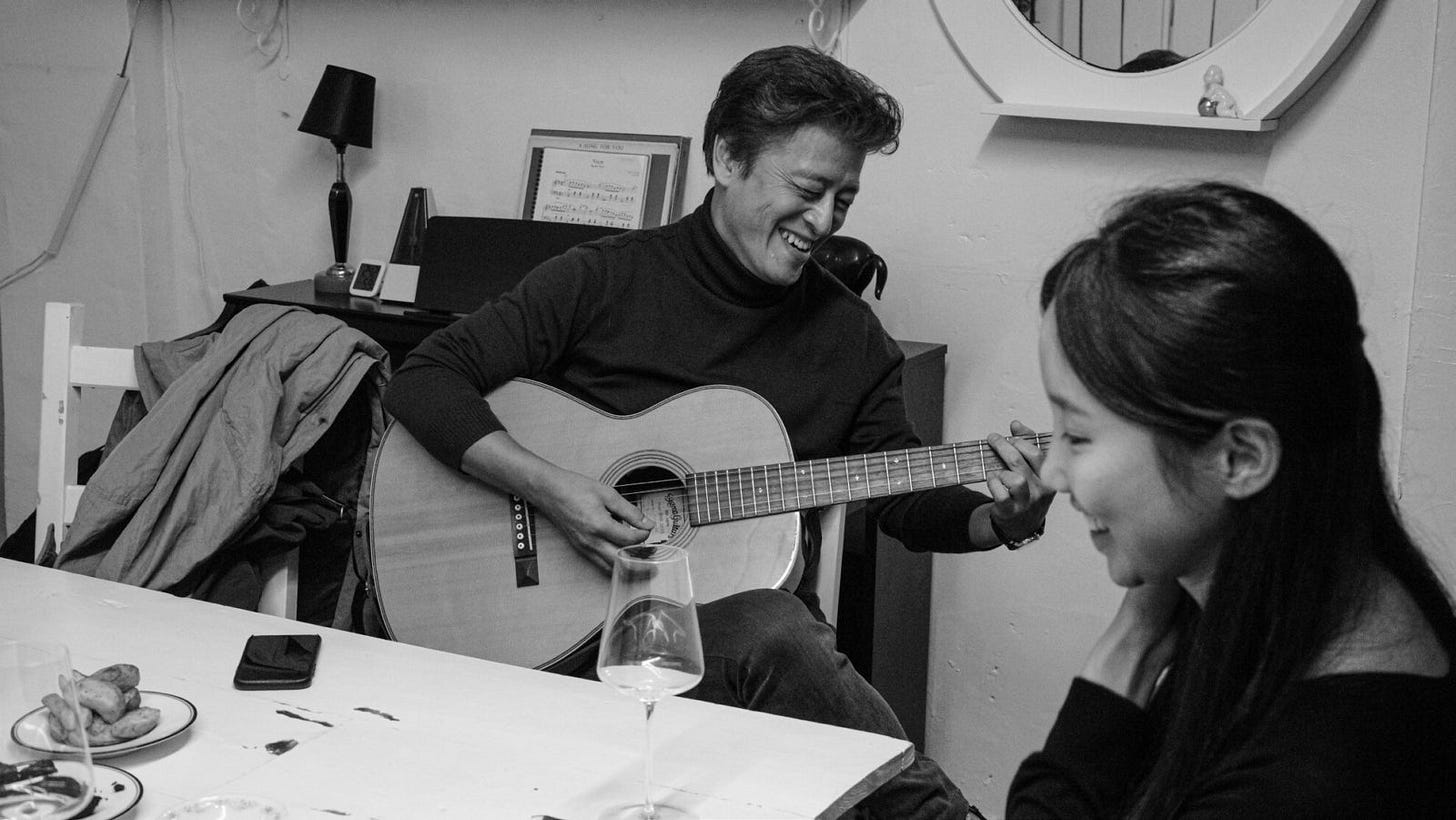Review: "Walk Up" is another Hong Sangsoo stunner
There is no way out of this building
Hong Sangsoo’s latest is one of the most quietly devastating films I’ve ever seen: A movie that uses Hong’s singular long-take style and a simple but rigorously ordered structure – 4 major sequences separated by 3 ellipsis, each signaled by a recurring piece of music – to paint a vivid picture of a man in purgatory. A figurative purgatory, at least – a prison of behavioral patterns he cannot break out of and personal failings he cannot overcome – but also possibly a literal purgatory, as this is a film about a man who enters a building he is never able to leave within the bounds of the film, and whose retrenchment into this space is signified by a damning möbius strip ending that cuts off all possibilities of escape.
Hong really makes you work for it this time, asking the viewer to be intensely active in studying each long scene to understand where each characters’ head is at and, as the film goes along, how they have changes in the intervening time each ellipsis marks. The film is a mystery, in the sense that human behavior is fundamentally mysterious, and that while the film is as dialogue-heavy as one would expect of Hong, the director is more interested in what is signaled by things the characters don’t say, in the space between the words, in the pregnant pauses that follow a question, in the body language of the speaker we are given space to study in these lengthy, unbroken shots. It is a film about failed and/or frustrated ambitions, about the agony of artistic pursuit much more than any possible ecstasy, and the cycles of disappointment and melancholy that produced by these frustrations. None of this is clear at the outset, though; even by Hong’s standards, this is a film that takes some time to reveal itself, to reveal how deeply uncomfortable its characters are and how deeply uncomfortable the viewer, by extension, will become in observing them. When the devastation comes, it isn’t in singular moments, but in the weight of all the small observations and emotions one accumulates while watching.
Hong stalwart Kwon Haehyo is extraordinary here as our prickly lead character, Byungsoo, a popular filmmaker caught in a rut and perpetually on the outs with those important in his life. He is not an easy character to like, but as he dislikes himself more than we ever could, we come to feel for him anyway. He comes to a building owned by an old, estranged friend (or possibly ex-lover), Ms. Kim (Lee Hye-Young, who was the center of Hong’s extraordinary 2022 films In Front of Your Face and The Novelist’s Film), along with his estranged daughter, to see if Ms. Kim can give her advice on a career in interior design. Years pass, and with each ellipsis, Byungsoo is stranded even more profoundly in this building and in his relationships with the women he encounters and enters into relationships with there. Each scene revolves around food and drink, and each follows a similar pace and flow, save for one arresting long take where Byungsoo retreats to his bed and imagines a mundane conversation with his girlfriend – a conversation he is, in reality, too petty and prickly and broken, in some deep-seated way, to actually engage in.
Even by Hong’s standards, this is a hard film to describe, both in its narrative content and structure and for the strange power it holds over the viewer. I found it harrowing, even if ‘harrowing’ is not a word I would previously have thought might apply to a film made in Hong’s slow, gentle style. Like all of Hong’s films, it starts out unassuming and simple, and one doesn’t realize they have been thrust into the midst of an emotional wringer until they’re in too deep to escape. With Kwon’s filmmaker protagonist serving as another potential Hong self-insert, the film feels deeply lacerating, a series of brutally honest and uncomfortable self-reflections that are left perpetually complicated, never resolving in absolution or revelation. There may be a way out of this building – the literal ‘walk up’ of the title or the figurative structure of melancholic isolation Byungsoo is enmeshed in – but if that exit exists, we don’t see it here. The film loops back on itself in its final moments in such a way as to make escape impossible. Byungsoo is left to haunt this space, and we are left haunted by the encounter.


